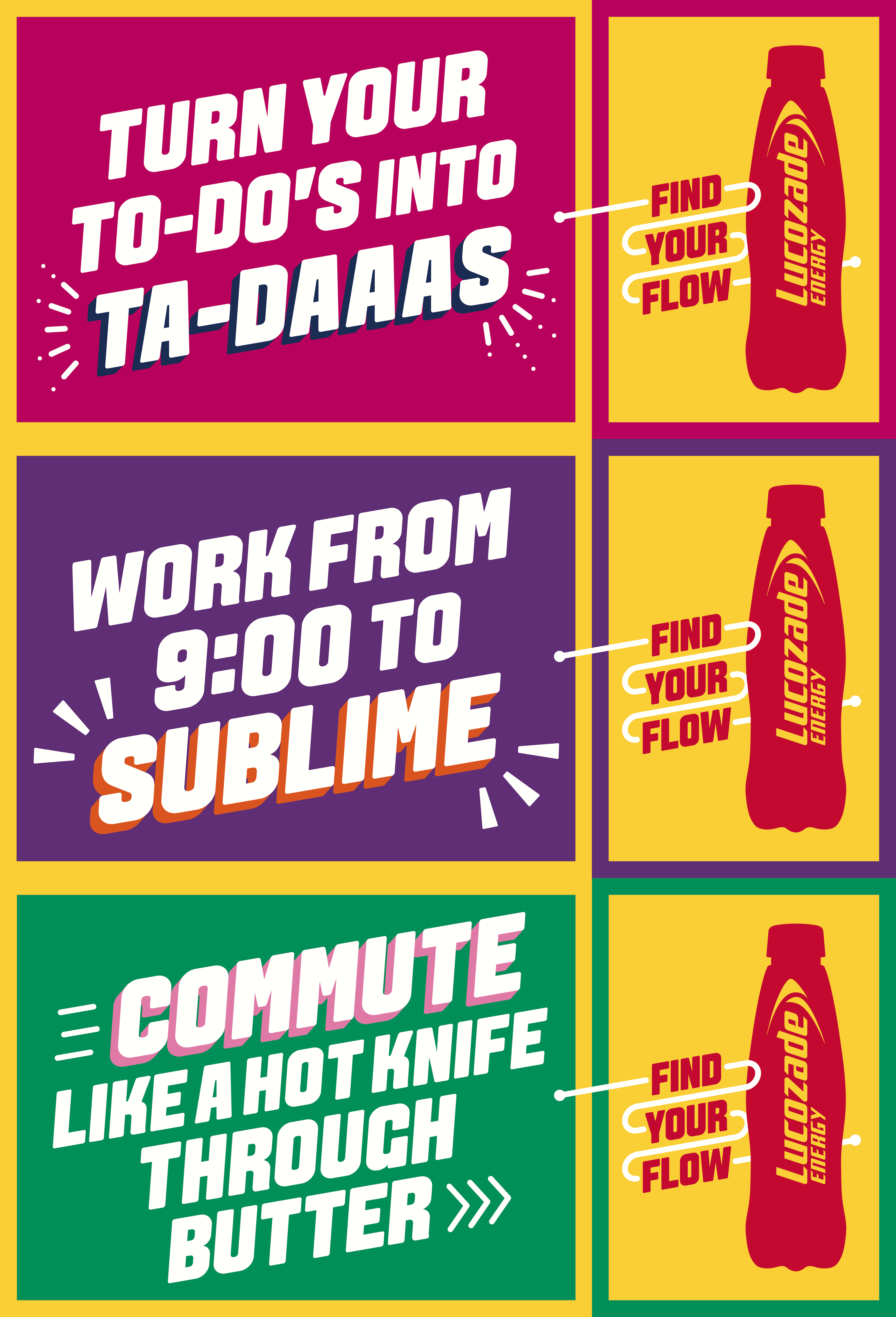Last year energy-drink brand Lucozade released its "Find Your Flow" campaign, an effort to rebuild its image as a drink for everyday energy, not just illness recovery as it was before. They made a commercial glamourizing generally mundane moments such as washing windows, doing crossword puzzles, and grooming a dog to push forward this idea: "You can have good days when you feel on form, then you can have bad days when you don't, the difference is energy. And that's what 'Find Your Flow' is all about. It's about having the energy to get on with your everyday, to find your rhythm, to hit your stride" (from creative director Darren Wright). While I appreciate and even agree with the message of high-energy living, I have never been a big fan of energy drinks in general. Lucozade's ads are humorous and clever, but I simply do not see how "finding your flow" would best come from an energy drink.
Throughout the
one-minute video, a deep voiceover describes the
effects of "finding your flow" with Lucozade: being unstoppable,
always at your best, making the best of the unexpected, and simply finding a
rhythm (as dramatic drumbeats echo in the background). I think it's really
important to have the energy to always feel capable and ready, and I believe
that any moment can be made great with the right mindset. However, I also
believe that is a completely mental and psychological process that won't be
helped by an energy drink. I understand the occasional physical energy boost
(whether from expertly-mixed chemicals or just a sugar rush) may help, but that
should continue to be part of illness-recovery, not a normal-day thing. People
would probably be able to "find their flow" a lot more easily if they
put in more effort towards things like a healthy diet, exercise, and the
often-ignored concept of sufficient sleep.
Lucozade's
commercial and ads are entertaining. If I were in
a store deciding between two energy-drink brands, I might remember that and
choose Lucozade. But as someone who generally doesn't use energy drinks, the
campaign doesn't make me any more convinced I need them.

(Partial argument)

